
Q&A with Garret Bradley & Fox and Rob Richardson for Amazon Original Documentary TIME Friday 09 October, 2020
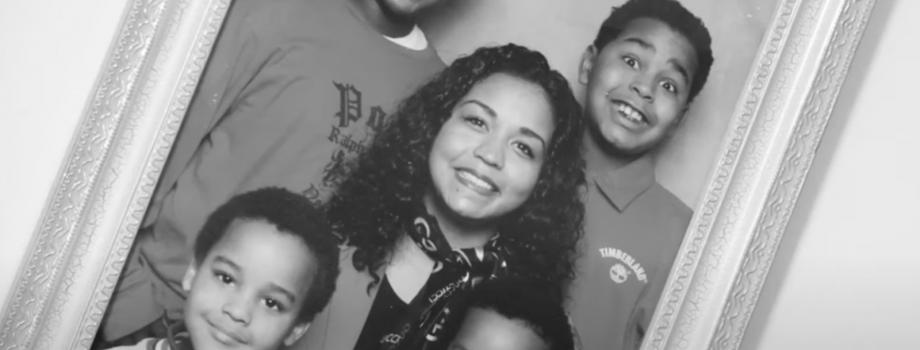
Time is a 2020 American documentary film produced and directed by Garrett Bradley. It follows Sibil Fox Richardson, fighting for the release of her husband, Rob, who is serving a 60-year prison sentence. I got an amazing opportunity to interview Fox and her husband, in which I learned she is still the firecracker of a woman who loves her family through thick and thin.
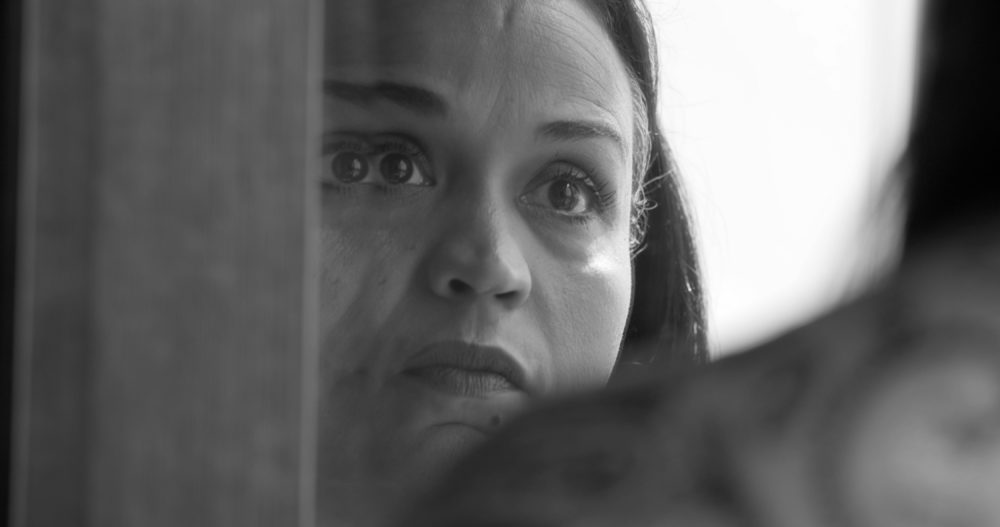
Sibyl “Fox” Richardson in a still from director Garrett Bradley’s documentary “Time.” (Courtesy Amazon Studios)
Fox Rich is a fighter. The entrepreneur, abolitionist and mother of six boys has spent the last two decades campaigning for the release of her husband. Fox Rich recorded hundreds of hours of home videos while her husband, Rob Rich, was in prison so he could see his children grow up. Fox didn’t know that the intimate footage would serve a greater purpose and bring awareness to the devastating effects of incarceration.
Rob was sentenced to 60 years without parole in Louisiana State Penitentiary for a botched bank robbery – in which no one received medical attention, according to the Louisiana’s Big Easy Magazine – that he and Fox committed together in 1997. Fox served 3½ years for her role as the getaway driver. After Fox served her time, she was left raising her six boys without their father and waiting on “Time” to be reunited with her husband and fight on the other side for his release year after year. Her story is told through this beautiful documentary directed by Garrett Bradley, and I got an opportunity to chat with the director, Fox & Rob Richardson for a Zoom roundtable discussion about TIME.
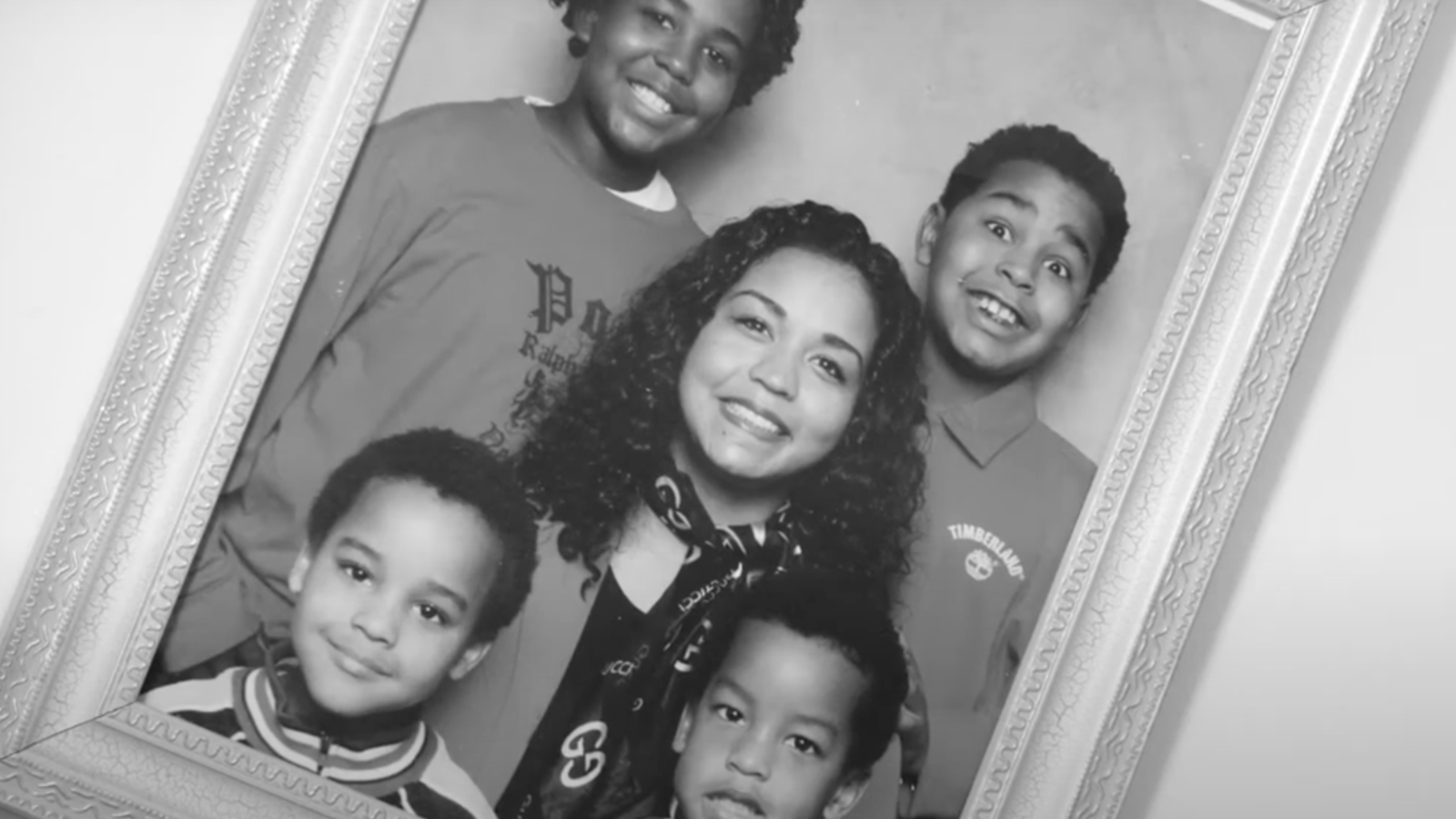
TIME is directed by Garrett Bradley (Alone, America) and produced by Lauren Domino (The Earth Is Humming, America), Kellen Quinn (Midnight Family, Brimstone & Glory) and Garrett Bradley. Executive producers are Laurene Powell Jobs (The Price of Free, A Thousand Cuts), Davis Guggenheim (Waiting for ‘Superman,’ An Inconvenient Truth – 2014 Academy Award® winner for Best Feature Documentary), Nicole Stott (Searching for Sugar Man, Restrepo), Rahdi Taylor (Minding the Gap, I Am Not Your Negro) and Kathleen Lingo (Walk Run Cha Cha, 4.1 Miles). Co-executive producers are Jonathan Silberberg (Paradise Lost 3: Purgatory, “Iconoclasts”) and Shannon Dill (Inheritance, He Named Me Malala).
Director Garrett Bradley
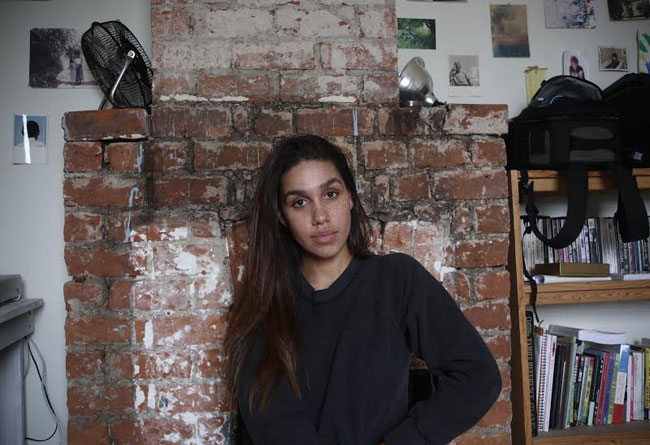
Q: How did this documentary come about?
Garrett Bradley (GB): In the process of making a short film called Alone, a thirteen minute short documentary that was supposed to be a series of intergenerational conversations between women who were in incarcerated families. I contacted an organization called FFLIC (Friends and Family of Louisiana’s Incarcerated Children) and I was advised the first person I need to be in contact with was Fox Rich. Fox is briefly in Alone for several seconds, and I got to know her in the process of making that film. Both of us agreed it would be wonderful to work together in extending the conversation around incarceration from a familial point of view.
Q: What do you want people to get out of the film?
GB: Good question. And it’s a question I always ask people that I, that I work with this? Why do we want to make this film together? What is it that we hope to achieve and sharing it with the world? I think Fox and Rob and the entire family their answer would be that their story is the story of 2.3 million American families. The hope is, I should also clarify that the intention in making the film doesn’t change and what you hope, how will function in the world, right? Like that tension never changes from from the moment you decide to do it, to when you’re shooting, to how it comes out into the world. I think that I think that their love for one another, their ability to stay connected and to stay united, their ability to maintain their individuality amidst the system are three types of examples of resistance.
I think at a bare bones minimum, I hope can be an offering to people who are entangled in the system currently. And to those who are less aware of it, or don’t feel that, that it’s an issue that affects them. I hope that these are things that that they that do resonate, to think about intimacy and the connection that we have with one another. Not as a as a privilege, but but as a right.
Q: What made you do this film in a black and white construct?
GB: I kind of wish I had a deep answer for it. To be honest with you, I just love black and white. I just think it’s beautiful. I think that films used to be made in black and white because we didn’t have color films. I think when color became an option and kind of just became a standard and an expectation and cinema and filmmaking is still so young. I kind of don’t think we should have any any of those expectations or traditions. I still think as filmmakers, we should just think of it as a choice and I don’t even know if we need to have a deep reason behind it all the time. Although I could make a case you know, for it.
Q: Do you think maybe those Home Videos came across a little bit clearer, easier with the black and white?
GB: Thank you because I can give you my honest answer ::laughter::
So first of all the archives I didn’t know existed until like our last day of filming. So I was sort of moving forward. And really frankly, taking a lot of the aesthetic choices alone, the short film I mentioned was in black and white. I was really just extrapolating that and applying it to this other film and really thinking about these two films, as being sister films that would always coexist with one another. So that was initially kind of my, my rationale for it. But then when Fox presented the archive to me 100 hours worth of footage, and I thought I was making a short film.
I started to comb through it. I mean, there were so many different opportunities and challenges that presented themselves as result of seeing this archive. But one of them to the point in terms of the color spectrum, was at the materiality in the spectrum of color that existed within the archive, really varied and was very different from what our modern day footage looked like. And it really felt to me that it actually it made the the difference in time really stand out. Black and White helped create sort of a uniformity and visual linearity that then allowed us from a narrative standpoint to really jump around in time in a more graceful way.
Q: What did you learn about maybe the justice system that you didn’t know going into it? What were some misconceptions about people who have committed crimes?
GB: The first place to start is that I obviously made a really conscious decision to address incarceration in regards to its effects on families and the ripple effect that happens on families. This isn’t to say that the facts that the number is the statistics, the legislative issues, the issues around our entire criminal justice system should not be abundantly clear and spelled out, and extremely effective in documentary filmmaking. I think that the two need to work together and I think as a filmmaker, it’s really important when you tackle an issue like this, it needs to, it needs to be something that you can tell in a genuine, honest way.
In order for me to do that I had to do it from the perspective which I thought, honor the family about unity. But one thing that stood out to me in a really literal way, and that was actually a huge challenge in the film itself was that indirectly answers your question, I think is important to mention is that when we think about 2.3 million people that are incarcerated,the average person finds it very difficult to actually fathom what that number looks like and what that number means, right? There’s so much power in the fact that we essentially, that this system has created an invisible population, a population that we can’t see that we can attach images or optics. Robert was incarcerated for 21 years, that body of land was was a series of several different plantations that were then consolidated into a single plantation, and were named after the enslaved people that were brought from the country of Angola, then the prison, and then it became a prison. Its 18,000 acres of land.
So not only was it impossible for us to get into the prison itself, to film it, and to show what was happening in there simultaneous to the family’s experience; but even shooting, bringing a drone over that property at a plant property, land could only capture a fraction of the magnitude of that. What was really clear to me in the process of making this film was that as filmmakers, and as artists, a way in which we can contribute to this crisis, is to create more visibility around it to really try to counteract the systematic, very purpose of what’s really happening. I’ll say that the only way to combat that or the way that I felt I had to combat that was in the family was in documenting and being with those who are on the outside and serving “time“.
Q: How important was that to include the children in the story as well?
GB: Thank you for that question as it was extremely important. I think that it was important for a lot of different reasons. One that I can kind of point to is that one of the things that I feel very proud of that we were able to accomplish through the generosity and participation of the family was being able to see how our forms of resistance to the system and to racism in America change from one generation to the next.
And Miss Peggy, for instance, Fox’s mother, she had a very specific way in which she recommended her daughter deal with the situation that was very much reflective of her generation and her generation’s response to survival and resistance. Fox clearly did it her way, which I think was very much in response to her generation. And so when we see that the young men , Freedom in particular, kind of articulates his way of combating that issue is to be is to embed himself in the system and actually be the one to help change these laws. Those are three different sort of trackable forms of resistance and means of responding to an ongoing historical issue in our country that are purely from and reflective of an entire family in a generation multiple generations.
Fox and Rob Richardson
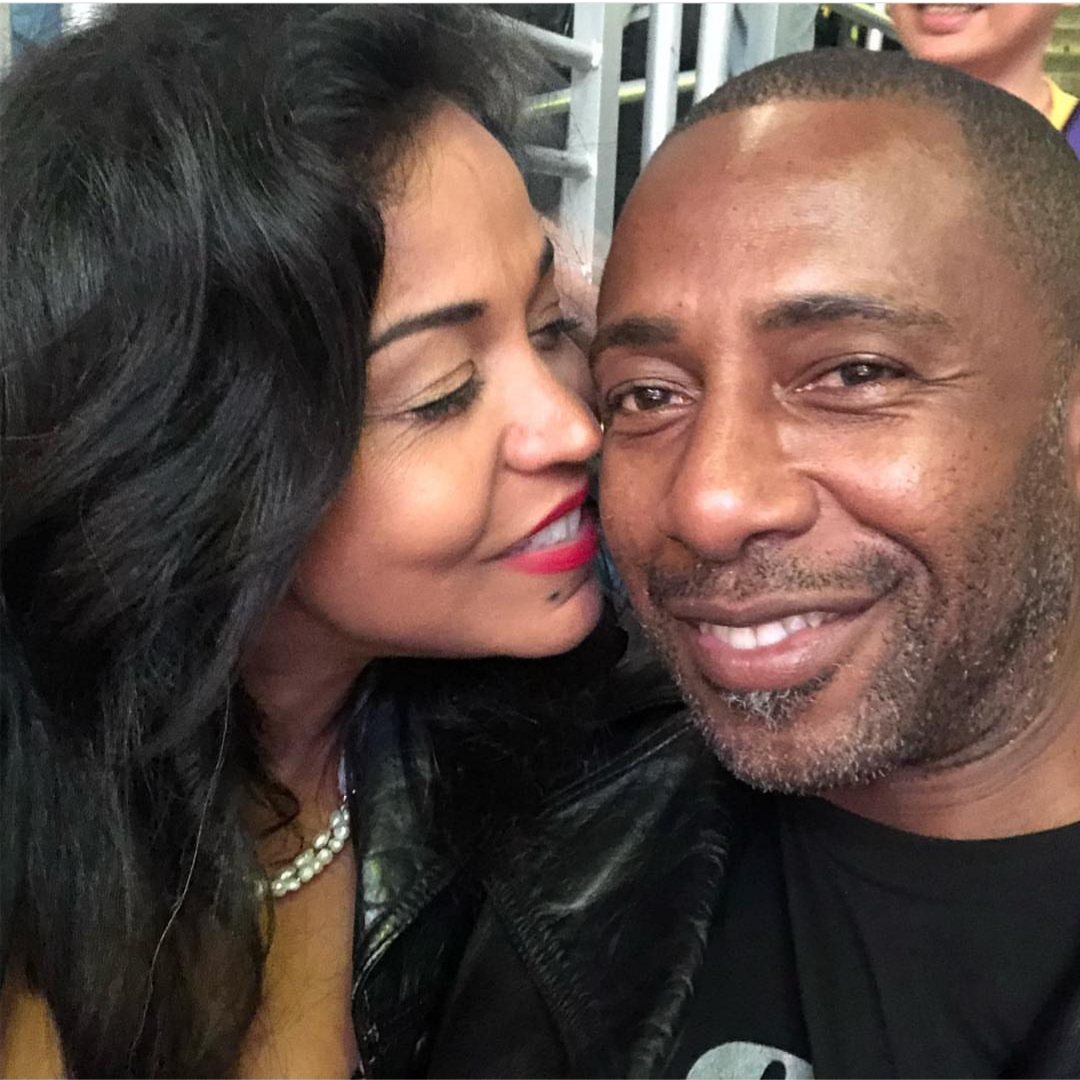
Q: How do both feel about your love story was depicted in this way?
Fox: It’s Garrett Bradley’s depiction of a mesmerizing portrait of resilience and radical love. When we watch the film ourselves, I just think it brings our own truths before us to say ‘Wow, we actually loved all the way through that’!
Q:What do you want people to know about incarceration and again, specifically our culture and the black community?
Rob: I think one of the things Garrett managed to do well in the film is that there was a point where when she describes about the mistake that Fox and I made and that our lives would never be the same as we were entering into Angola ferry right? I think that was a depiction to be able to show that how all across our country, that prisons are tucked off neatly inside of these small towns on the outskirts of major cities all across our country. A lot of the injustices that are happening in those murky places or whatever or unknown to the to the general public. So one of the things that we will hope for for is that the film itself would be able to bring greater awareness to people because I still believe some of the stuff that my grandmother used to tell me. And that’s when people know better, they do better.
I think that if our country would know that these types of things were going on, I think that they would take action. So that’s the other thing that we’re hopeful for is that people will be able to be made to call it to action if you would. And last but not least, I think that we’re hopeful that they will realize that love is still is still possible for the people that seek it. As my wife says so beautifully, she says that love is the most divine chemical in the universe and it destroys it overcomes it takes over anything that is not of itself. So I hope that through our demonstration of how it is that we were able to go through incarceration and still come out victorious on the end that other people will take that as a as a war cry and love harder love more.
Q:Was there a time though, Rob, when you just wanted to tell Fox just to give up?
Rob: No, see, from the beginning when you take vows, you say, till death do us part. Mass Incarceration was not death, right? I was dead by incarceration but it meant that either I was going to give my life I was going to die or it was going to be this again. So it was never a moment in time while we were going through this, that giving up was a was even a consideration of ours. I hope that people were able to even see that when I exited this prison with the T shirt bearing that very message ‘never give up’. Y’all know they don’t make them in a prison. So that was By Design, we never gave up. It was never an option. This this woman and my family are worth fighting for it. I fight any day of the week for them.
Q: For Fox, were you always making home videos? Were you always documenting your love and family life?
Fox: When I married Rob I was the happiest woman in the world, I had fulfilled my dream we met in high school, and I dated for 10 years on and off. So when we finally started a family, I was whooo hooo!! You couldnt tell me nothing! You can feel this way in the film, you see me putting the camera on the dash when I’m laying it there saying, “We’re the Riches!” We went through a lot to really get it right, we didn’t have an example of what families look like in our community, but we wanted to build it in with three children between us, we went to the altar and fix that sh*t!
To have that footage use later on to tell a much, much bigger story is nothing less than amazing. I think it’s important that we as black people recognize the importance of our own history, and document our story. Taking a family photo, I’m not just videotaping ourselves on our cell phone, but actually putting that footage in a space that we can revisit it because all of our stories are important, at least to the next generation of us they should be.
Q: So what type of conversations are you both having with those young boys in this current climate?
Rob: One that I can think of, was most recent, when this wave of Black Lives Matter. Momentum started to shift with all the different cases that popped up whether they be that from Breonna Taylor, that of George Floyd, you know, and the likes. Our young men are at that age right now, where they are ready to kind of ready take it to the streets, they see all of the in justices and things that are going on. But one of the most important things I think for us was to make sure that they they did the proper research and not necessarily be led out into the street by their emotions. We wanted them to be into the streets to fight for something that they felt was right.
That being said, when you think about a lot of the people that are taken to the streets right now, Fox and I was sitting around thinking about “wow, there’s a lot of white people in the street that are out there protesting this time, right”? All right. But when you look at the statistics, white men are being shot up and killed by white police officers. It’s just not a sensational story about white people shooting white people, or black people shooting white people is far more sensational to talk about a white cops shooting the black guy dead in the streets. But if you’re a young man that is being led by what it is that you’re seeing in media, you could really take to the streets. Before you know it, you’d be like the little 16 year old kid that brandished a firearm and start shooting in a crowd when people were out there protesting. It had a lot to do with the fact that he was caught up in his emotions, and no one had ever worked to temper the emotions. There’s a big difference between protests and in writing.
Fox: I think for our sons as well , one of the things we tried to encourage them in is remembering their privilege. That the talk about white privilege, we just don’t do that in our household because being a person of color has its privileges in society, and you just have to seek those out because you believe that they are yours right? We were a poor family in Louisiana, the only family in 2018, to be received clemency from our government that was incarcerated. It wasn’t because we donated to the campaign. It wasn’t because we we went out and supported the person who was becoming governor, it was because we believe that we were deserving of it and no was not an option for us. Whatever door we had to knock on wood, we were entitled, I think it’s also about us moving in space of being proud and entitle instead of talking about somebody else’s privilege, and focus on our own because we had it!
Q: How do you hope that this film will affect and bring to light the abuse of power that the prison system has?
Fox: I believe that those that are well meaning abolitionists will see this film and their spirits will be invoked to do something about it. I think that hopefully, people will see our story and and think twice before committing an offense, knowing that they will be treated differently when they enter into this system, according to statistics and the facts. It will quick in the spirit for people to see the real true everyday callousness of the people that are conducting the system, and demand change from them as well. So I just don’t think that someone can watch this film of two decades, and and not be moved in some space by one piece or another to do something different. I think that this story like none other puts “time” before us, like we never could have imagined.
Q: Fox when are you going on your speaking tour?
Fox: As they let me go. I want to go run my mouth so bad I don’t know what to do with myself! I tell Mr. Richardson, poor baby he be going to sleep and I still be talking? I can’t help myself! I can’t!
Q: There was a little ceremony block that you had at the end where you burned Rob’s picture, which I thought was very symbolic so what was the symbolism around that?
We burn what we call ‘Flat Rob’. I had gotten a life sized poster made of Rob to put him in space in our home, as I became even more focused in my fight. So the weekend that he came home and we had a welcome back celebration for him, we took Flat Rob out in the backyard and lit him up like a Christmas tree and thank God over and over again for the return of real Rob.
Q:What is your meaning of “Time” now?
Fox: Time now is precious. We just are very careful about how we use it, who we share it with what we spend it on, what we allow it to take our attention and time. Those things are really evaluated and assessed more carefully now, for both of us.
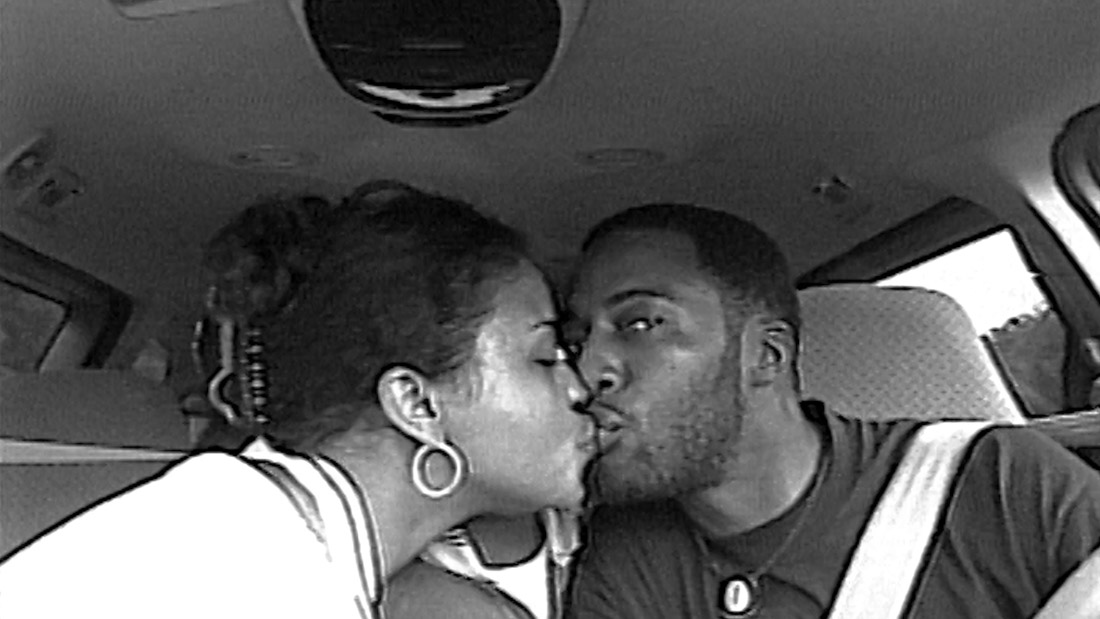
A still from Time by Ursula Garrett Bradley, an official selection of the U.S. Documentary Competition at the 2020 Sundance Film Festival. Courtesy of Sundance Institute.
All photos are copyrighted and may be used by press only for the purpose of news or editorial coverage of Sundance Institute programs. Photos must be accompanied by a credit to the photographer and/or ‘Courtesy of Sundance Institute.’ Unauthorized use, alteration, reproduction or sale of logos and/or photos is strictly prohibited.
And on that note my final sediments of everything is “TIME prevails all“.
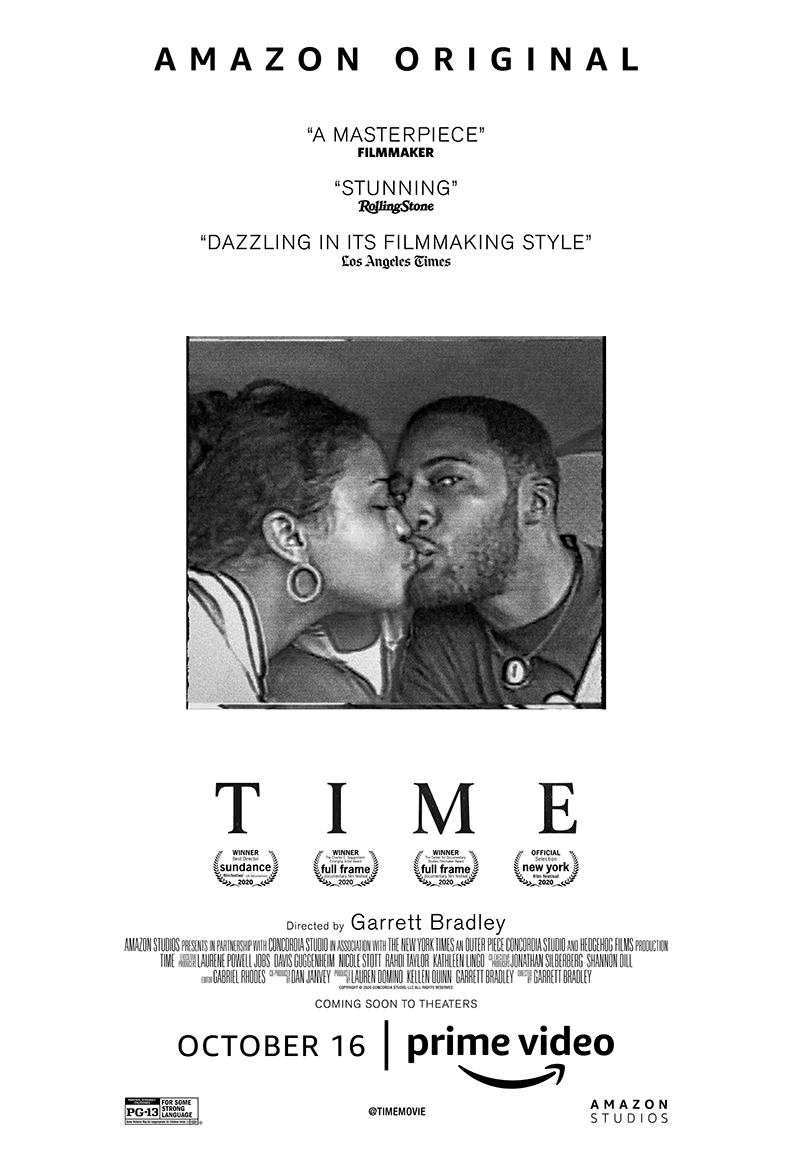
#TIMETHEMOVE available in select theaters and streaming on Amazon Prime Video Oct. 16




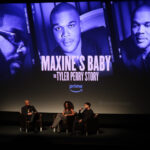









Thanks for sharing this documentary, I haven’t watched this and now I got an idea what’s the story. Is this available elsewhere other than Prime video?
It is the story of a man, of any of us. It touched my heart. Thanks for this Q&A which brought me even closer to this documentary.
This is so powerful. Sometimes, I feel like our justice system has a severe lack of justice in it. I need to watch this.
That is so cool that you got to interview them. It sounds like a hard hitting story that will resonate with so many people. I am def going to check it out!
I had never heard of this documentary, but after reading the interview I am especially struck by Fox’s heart and love for life. This is such a good story of people who make some really wrong choices but turn things around. I am glad they finally saw a happy ending and hope the rest of their life is lived with blessings and fulfillment.
I definitely going to watch this documentary soon once I renew my Amazon prime video subscription. I love hearing about life stories as it helps me understand my own reality better.
I hadn’t heard of this but I think I definitely need to watch it. Thanks for sharing!
I need to watch this. It looks really good. I admire her commitment, and I love seeing him doing better for himself.
What a beautiful interview to read, I have never heard that documentary but reading this interview touches my heart.
This looks like a great watch! I liked the interview too…I need to check if it’s releasing in the Amazon, Middle East or not.
A very interesting topic for a documentary, a touching story indeed. I will have to check it out since I have Amazon Prime.
Thanks for sharing and bringing this documentary to the forefront. Its a heart wrenching story.
Such an interesting interview and documentary topic. I’ll definitely be watching this on Friday!
What a great interview! Thanks for sharing!
Wow, this is an intriguing story. I was so captivated I read all the interview this morning. I’m gonna search for it on Amazon Prime UK
Sounds like an interesting film, hopefully I can find it on my Amazon. Thank you for this interview.
Now, this is a film that I must watch. Guess what? It is tomorrow, isn’t it? (wink wink)
I love this interview! I learned a lot! I hope you’ll have a Q&A series soon.
I am in love with Amazon now recently because of its lovely collection. I am going to search and find out this documentary. I liked the interview
Oh my God!!!! I just watched it, touched my soul the love and undying determination Ms. Rich had for her family. Her mother should be proud it’s something in the core of her soul that she is blessed with. That’s all I can say, phenomenal documentary!!!
This woman is so amazing I loved her resilience and how she raised those strong smart successful black men. I sat in my living room fixed to this story as this beautiful strong dedicated mother sister daughter wife pressed through with grace her strength and faith in God Her “success is the best revenge”slogan is something all black people should embrace understanding and walk in daily… I absolutely love this story…I wish the family forever love peace happiness and last but not least many many many Blessings..
thanks for giving some clue about the story , now am watch this peacly .
Now am going to watch it thank you
Thanks sharing this article
Thanks for narrating the story in interesting way thank you so much for this
That is so cool that you got to interview them!!. It sounds like a hard hitting story that will resonate with so many people.! I am def going to check it out!!
The documentary “Time” directed by Garrett Bradley is an impactful and important film that sheds light on the devastating effects of mass incarceration on families. The film follows the story of Sibil Fox Richardson, a mother of six boys who fought tirelessly for the release of her husband, Rob, who was serving a 60-year prison sentence. The film is a beautiful and intimate portrayal of their story, showcasing their love for each other and their unwavering commitment to fighting for justice. I appreciate the director’s choice to film in black and white, which adds a raw and powerful aesthetic to the film. Overall, “Time” is a must-watch documentary that raises important questions about the criminal justice system and the toll it takes on families.